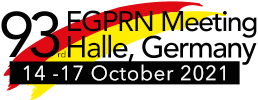National Keynote
Prof. Dr. Christian Franken
Prof. Dr. Christian Franken, studied pharmacy in Regensburg and Bonn, where he also completed his doctorate in pharmacology at the Pharmaceutical Institute. Following his doctorate, he worked as a hospital pharmacist in Ulm, Aachen and Eschweiler. At the same time, he completed the IWW course in economics at the Open University of Hagen. From 2003 to 2007 he was chief pharmacist of the University Hospital Düsseldorf. He is a specialist pharmacist for clinical pharmacy and drug information. From 2007 to 2020, he was chief pharmacist and, since 2013, board member at DocMorris. In 2018, he founded DiHeSys Digital Health Systems with Gerald Huber and Markus Dachtler, of which he has been managing partner since 2020.
Parallel to his work in the healthcare industry, he is also involved in academic life. He is one of the founding lecturers of the Apollon University of Health Sciences (Public Health, Health Services Research), he holds lectureships in Jena and Basel (Comparison of international healthcare systems), and he is an assistant professor at the Department of Clinical Pharmacology and Systems Medicine at Maastricht University. Ready for the future? Disruptive innovations - data – studies
Ready for the future ? Disruptive innovations - data - studies
The number of clinical studies conducted in outpatient settings is increasing worldwide. This is eminently important with regard to a representation of the real healthcare situation and the knowledge that can be gained from it. It is becoming increasingly important to collect relevant data across the board, to make them valid for evaluation and to be able to derive findings, since innovations are also entering the medical markets that cannot be seriously implemented and reimbursed without a valid data basis. Therefore, it will be crucial in the next few years to create an infrastructure that makes it possible to meet these requirements in the outpatient sector and, as far as possible, to try not to let go of the reins of action. To this end, numerous gaps must be closed and problem solutions addressed. These include, in particular, the further integration of academic activities into everyday clinical practice, the management of drastic personnel bottlenecks, the creation of a valid IT infrastructure based on sensible and de-bureaucratized processes, and the homogenization of framework conditions. A look at other healthcare systems shows that this is not impossible.

